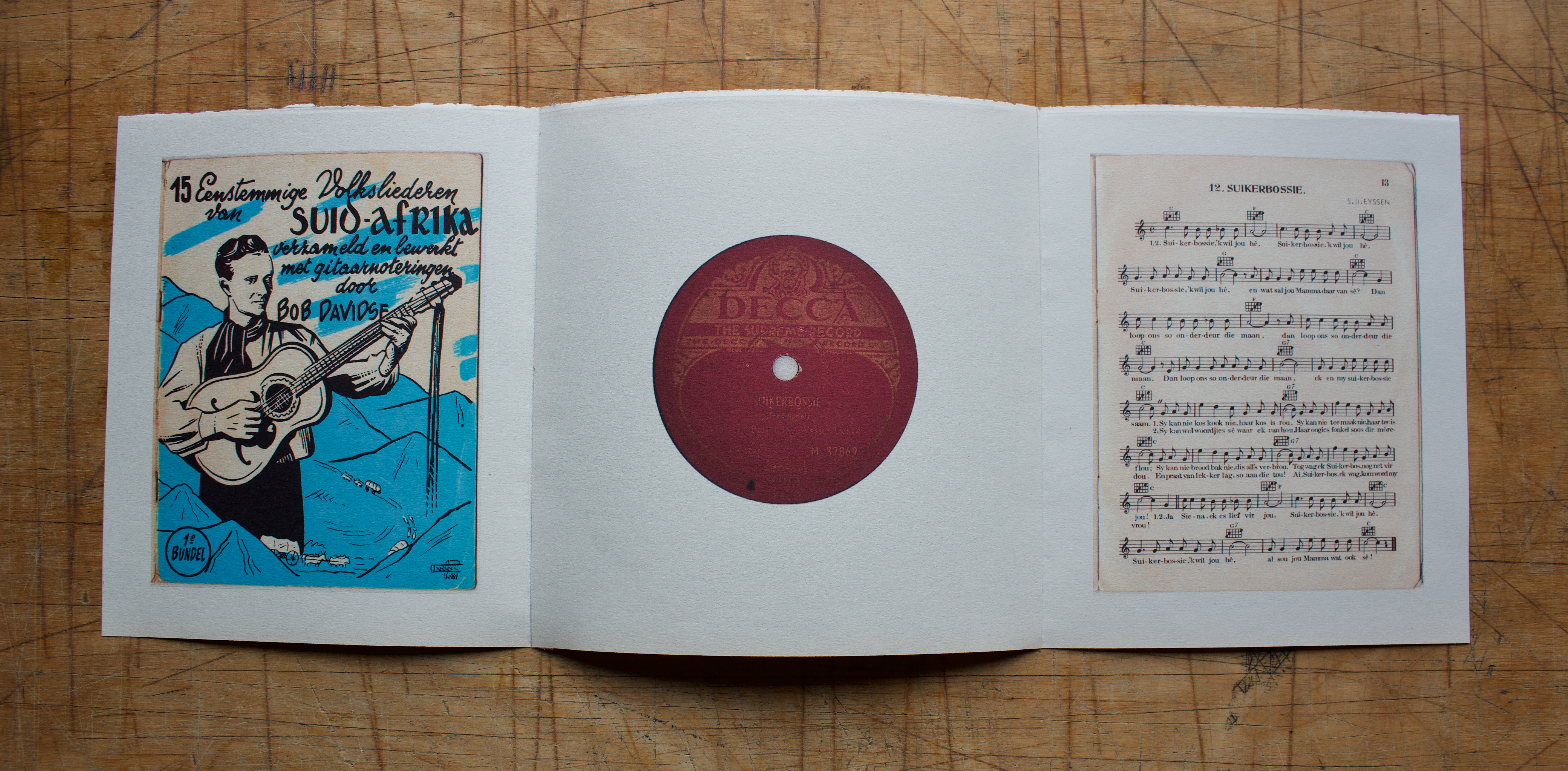Part 1 / Suikerbossie is a ghoema liedjie, a South African folk song, that has its origins in Indonesia and was brought to the Cape by enslaved individuals in the 17th and 18th century who developed the Afrikaans version of the song.

‘Suikerbossie’ refers to a sweetened dummy for an infant. The song developed as a ghoema (drum) liedjie, songs sung by enslaved men and women on picnics and days off. They are a melange of Indonesian and Dutch folksongs and usually overtly satirical, ridiculing sentimentalized songs of boerenooi and boerevrou. Ironical then that some were later appropriated as boere liedjies by white Afrikaners.

In The Hidden Histories of Afrikaans (1015), Hein Willemse quotes South African linguist and revolutionary Neville Alexander who sheds light on the creole history of the song. Alexander tells how as a student in Germany in the 1950s, he and his international friends often sang folk songs together, “One day they asked me to sing something from Cape Town and I sang ‘Suikerbossie’, ‘Sugarbush’, a very simple little song. When I was sort of getting into it, the Indonesian said, ‘Stop, but that’s not a Cape Town song, that’s our song.’ I said, ‘What do you mean, it’s your song? No, I’m singing in Afrikaans.’ And he said, ‘No, that’s an Indonesian song.’ So I thought well, there must be an explanation, and the only expla-nation I can think of is that it came with the slaves. It was funny because he was out-raged—‘How can you claim the song for yourself, it’s our song; and I said, ‘As far as I know it is our song.’ (Alexander in Busch et al., 2014: 66)
